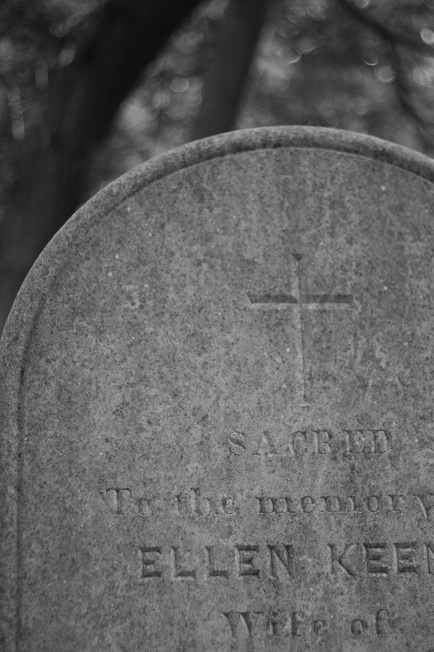I can’t recall the first time I realized that everyone was going to die. In a way, I still don’t believe it. It’s not something I dwell on—but on the loneliest days or the slowest weeks, I come to the realization that there is a clock ticking somewhere just for us. But just as quickly, I push it out, burying it somewhere in the recesses of my mind. And yet, despite this, I do think there was one moment in my life that defined death, and for me that happened when I was 17, when my grandmother died.
This was the first time that someone very close to me had passed away. Death had been around me before; I grew up with a 24-hour news cycle, after all. People die all the time: it’s a natural and inevitable part of life. But, until that day in January, I had not personally experienced the finality of it. My grandmother was in my life at one moment and then in the next, she was gone. It is such a weird and relative concept that it’s hard to put into words. My mom, dad and I were all in church, when we found out. I was rehearsing with the choir, when suddenly my dad appeared behind me. He told me she was gone and I just kind of stared at him. Then I remembered my mom and what she must be going through and I leaped into action—I had to keep moving so I wasn’t overwhelmed with shock.
My experience with my grandmother’s death was, I think, pretty average. Not to make it sound like it wasn’t a big deal, but my grandmother, at 88, was living in a nursing home and was getting ready to move to hospice care when she died. My family was “prepared” for it and we had been making arrangements for a while. But there was still a big part of me that couldn’t imagine a day when my grandmother wouldn’t be around. She had been a constant presence in my life since I was born. Her life was so interesting, and she was so interesting, and seeing that taken away from the world was heartbreaking. She lived through some of the more tumultuous decades of the past century and, growing up, she would alway s tell me stories about traveling through, and living in, Europe. We’d play cribbage and she would teach me how to throw classy dinner parties. She was my grandmother.
For me, the hardest part was seeing how difficult my grandmother’s death was for my mom. She was so sad. Even though I was still in shock, I focused on keeping myself together so I could make her mother’s death easier to bear. That day was a blur of documents and plans for the funeral, which was the easiest part of the whole experience, in my opinion. But then we went home, where there was nothing to distract us anymore. Nothing I had ever experienced could prepare me for the sheer emptiness I felt during that downtime. To cope with this, I did what I usually do whenever I feel sad: I retreated. The next day, I made a CD of depressing music, got in my car, and drove around for a while—stopping when I wanted to, but mostly just thinking. There were a lot of things that I wished I had asked my grandmother, wished I had told her. I wanted to know what she thought about growing old? Did time eventually slow down? What was her favorite memory? And I wanted to tell her I loved her. But mostly, I just wished I had spent so much more time with her.
Her death made me think about how I treat the people in my life and I’ve since realized that I approach my relationships selfishly. I seek out people who make me feel good, who make me want to be better, who inspire me to do good things. But I forget most of the time the effect I have on them and how our relationship is bigger than both of us. If you only pay attention to your friends when they are physically right beside you, you run the risk of missing important connections with them. By thinking and observing people outside of your relationship, you could potentially discover more about them and yourself as well. Taking time to listen and to cultivate my relationships has helped me connect on multiple levels. There are some people I would have never thought I could be friends with until I gave them the time to give them a chance and realize that everyone has something to give if you listen long enough. I truly believe we will have fewer regrets in life if we listen, interact, and forgive those we spend time with.
When someone you love has died, you miss everything—and I mean everything—about him or her. Playing, laughing, disagreeing, even fighting with them. It’s an ache that sits right on your heart. I do not say this to make it harder for those who are missing someone, but I do want you know that missing someone doesn’t go away. Missing that person who died will always hurt some part of you. But it doesn’t have to make you miserable, or make you retreat, or make life harder for you. By missing them, you can remember that the person you love, even in death, is making you a better person, simply by reminding you that life is short, and that we all want to leave this Earth, and our friends, a little better than how we found them.
